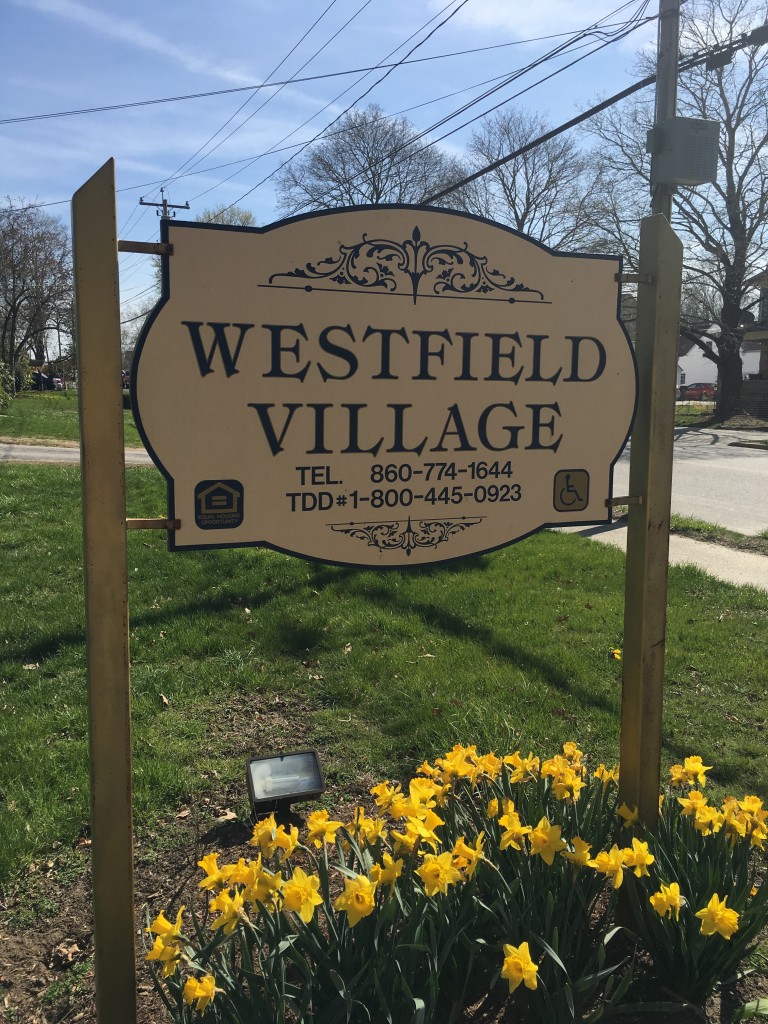Scriptures: John 13: 31-35, Revelation 21: 1-6
“Love one another.” Three little words from the middle of the Gospel of John, yet those three words changed everything for us in the Christian tradition. They fundamentally and seismically shifted what faith and religion were about. You see historic Judaism championed the Law. Found in the first five books of the Hebrew Bible (aka Old Testament) the law dictates how to live a good and right life so that people are treated (and treat each other!) justly and so that Israel as a people would flourish.
Now remember the earliest Christians weren’t really Christians. They were Jews who believed the prophecies had been fulfilled, that Jesus was the Messiah. And so for them, there was no question about whether or not the law still applied—of course it did. And you’ll notice that Jesus doesn’t repeal the law. But what he says fundamentally and seismically shifts the point. No longer is faith or religion about checking off a series of boxes or accomplishing tasks that create a good life. No, Jesus boils it down for us, Jesus simplified it: “Love on another,” he says in John. And just to make his point clear, he adds, “Just as I have loved you, you should love one another.”
It’s called the new commandment. And you know, there’s a day on our liturgical calendar when we specifically remember those words—the words of the new commandment or in Latin, mandatum. Which day? Maundy Thursday.
What a wonderful summation of what it’s all about: loving one another. It kinda leaves me with a warm, fuzzy feeling—until I remember that second bit: Just as I have loved you. And that’s where the pressure comes in. How am I supposed to love people like Jesus. I mean, the whole point is that I’m NOT Jesus. You see, Jesus loved us to the point of dying on the cross and frankly, I love y’all a whole lot, but dying on a cross isn’t on my t0-do list.
But here’s some good news: Jesus isn’t asking you to die on a cross. Jesus is reminding us of just how much God love us that we would be inspired and empowered to love one another.
And here’s some more good news: We don’t have to love perfectly to love meaningfully. Does that make sense? Let me say it again: you don’t have to love perfectly to love meaningfully. Man, I wish I could say I came up with that. But I can’t—it was theologian David Lose, and he hits the nail on the head.
Once we’ve given ourselves permission to love, not perfectly but meaningfully, the question becomes this: how will we love. And the truth is there are lots of answers to that question. However you answer that question—how we will love one another—the answer always includes intentionality.
Let me give you an example—one close to my heart. My mother was the sunshine chair of every stinkin’ committee, group, organization, or sisterhood she was part of. Do you know what sunshine chairs do? It’s not generally a formalized position. They are the people who remember. And they don’t just remember. They remember and acknowledge. Now my mother’s tool of the sunshine trade was stationary—stationary and notecards. She would get up early in the morning and sit in her chair with her lap desk, and she would write notes to people. Get well cards and sympathy cards, birthday notes and thank you notes and thinking of you notes and notes to her co-worker’s cousin’s dog. Ok. Maybe not. But it wouldn’t surprise me. She loved people. She cared for them. And so, she sent them notes.
I received one of her notes in 2013, thirteen years after she wrote it and six years after she had died. My cousin found it in some her mother’s belongings. It’s dated February 24, 2000, 4:20 am. Here’s what the note says:
Dear Jonathan,
Cookie (our dog) is in her chair, I have a cup of coffee, and Dad’s sleeping a few minutes more. While I have a quiet moment I wanted to write a note to tell you how much we both love you. Ever since the day you were born, you have been the most special and loved part of our lives. We love you completely and totally without condition or reservation. we are proud of you and all you do. Jonathan, i can’t imagine not being proud of you—no matter what—because you are our son, our child, our young man. Any decision you make in your life will make us proud and we will stand behind you 100%. Remember my song to you: There’s a tiny baby boy in my arms,/And I’m so very taken by his charms/ He’s a cutie, sweetie pie/ He’s the apple of my eye!/There’s a tiny baby boy in my arms! Son you will always be in my arms and in my heart. Love, Mom
A card in the mail might not seem like a big deal, but when you’ve faced illness or uncertainty or loneliness, or in my case, when your mother’s been gone for years, it can mean a lot. I can remember her saying, “I’ll send Virginia (that was her sister) a card with purple wisteria on it. Purple and yellow are her favorite colors, you know.” The gift wasn’t in the cards, but in the intentionality.
 Westfield has a history of being intentional in their care for the community. You might’ve heard of Westfield Village—a senior housing facility just up the road off Broad Street. Westfield Village wouldn’t exist without the intentionality of our congregation. Under the leadership of Pastor Emeritus Ray Sikkel, this congregation saw that there was a need for affordable, senior housing. And so, they addressed it. They researched the need and the options and what it would take to make a difference. The congregation voted in 1970 to sponsor the project—an effort that wasn’t completed until 1979. And now we have Westfield Village.
Westfield has a history of being intentional in their care for the community. You might’ve heard of Westfield Village—a senior housing facility just up the road off Broad Street. Westfield Village wouldn’t exist without the intentionality of our congregation. Under the leadership of Pastor Emeritus Ray Sikkel, this congregation saw that there was a need for affordable, senior housing. And so, they addressed it. They researched the need and the options and what it would take to make a difference. The congregation voted in 1970 to sponsor the project—an effort that wasn’t completed until 1979. And now we have Westfield Village.
In that vein, we’re working on being intentional not just in the way we care for the community, but in the way we care for one another. I’m sure you’ve noticed that in the last six months or so, we’ve grown. Word has gotten out about what a kind, generous, genuine community of faith this is. People want to be part of it. And for those who are newer, let me be crystal clear: you are wanted here. We rejoice in your presence here.
But you know something? This growth we’re experiencing, while long-hoped for by many sitting in this room, is, frankly, new terrain. And rather than stumble our way through figuring out just how to handle it, we are going to be intentional: intentional in how we forge new relationship, intentional in how we care for each other, intentional in how we love each other.
One way we are being intentional in our caring for one another is through our Westfield Care Collectives. We first introduced our Care Collectives a couple of months back. Our goal is simple: empower the people of Westfield to (1) better Care for Each Other and (2) better Care for the Church. Here’s the idea: members and friends of Westfield are divided into twelve small groups who, for a year, look out for each other. Each groups has a mix of regular attenders, shut-ins, members, and friends—people who are regular attenders and participants in the life of the church but haven’t become official members just yet. What it boils down to is this: We want to empower each of you to care for one another, to love one another, with intentionality. Now, why is that? Because Jesus said to. Jesus said, “love one another.”
So, what does caring for each other with intentionality look like? Well, that depends. If my mother was in a group, you better believed she’d be sending a card for every occasion she could think of. Maybe baking is more of your speed or calling or texting. There’s no restriction to what our love for one another looks like. So go crazy. Get creative.
But there have been few questions about our Care Collectives that I should address.
 The first goes something like this: When I joined the church, I didn’t sign up to be in a Care Collective. I don’t want to be in one. Will you take me off the list? The short answer is no. The long answer is Noooooooooooooo. In all seriousness, let me explain. The Care Collectives are meant to empower you to care for each other with intentionality. The inverse is also true. They are also meant to empower others to care for you with intentionality. As with everything in the church, it’s up to you to be as involved as you want to be. That said, our Board has decided that all members and friends will be in a care collective so that we can work to be sure folks are being taken care of.
The first goes something like this: When I joined the church, I didn’t sign up to be in a Care Collective. I don’t want to be in one. Will you take me off the list? The short answer is no. The long answer is Noooooooooooooo. In all seriousness, let me explain. The Care Collectives are meant to empower you to care for each other with intentionality. The inverse is also true. They are also meant to empower others to care for you with intentionality. As with everything in the church, it’s up to you to be as involved as you want to be. That said, our Board has decided that all members and friends will be in a care collective so that we can work to be sure folks are being taken care of.
Here’s the thing about being part of a Christian community of faith: it’s not a passive action. This isn’t a performance for any one of us to attend, a show for entertainment. A faithful life is something that involves action. It’s work—hard, holy, blessed work.
This work is particularly important as we continue to grow. It can be intimidating to make new friends. Our care collectives will hopefully ease that transition for folks who’ve decided to call Westfield home, providing them with a group of folks who look out for them and make sure they’re plugged in.
Here’s another question: What if I don’t like someone in my Care Collective? To that I say: do you think Jesus liked all the disciples? Jesus didn’t tell us to like each other. He commanded us to love each other.
For what it’s worth, however, in my experience, the more I get to know someone, the harder it is for me to dislike them. I know you know this, but it should be said: people are hard. Relationships are hard. The truth is that when each of us walk into this room, we don’t come alone. We bring with us all sorts of baggage—invisible histories and stories and big dreams and dashed hopes and deep promises and unspeakable fears. And for some reason, we each walk into this room on a Sunday morning taking the chance that it’ll be place where we can lay it down for a while—taking the chance that, just for a little bit, we can put down the things that we’re saddled with and just bask in God’s goodness—a goodness that’s revealed to us in worship and song and prayer and community—a community that cares with intentionality.
In terms of intentionally caring for the church, we’re starting easy: Coffee Hour. Now, let’s be clear: the point of the care collectives is not to be sure Coffee Hour is covered every week. The point is to empower all of us to (1) better care for each other and (2) better care for the church. But, we have to start somewhere. So, each month, an individual Care Collective will be responsible for Coffee Hour. It’s up to that group to decide what they should do for coffee hour—what food, how things should be set up. They can even decide that (listen closely: this is the closest thing to blasphemy you’ll hear me say) they aren’t making coffee one week! (Do that at your own risk).
Why coffee hour? Well, time and again in the scriptures, we encounter Jesus breaking bread with his followers—with the people who love him. It was a unifier. Sitting around a table is equalizing in a way. And while coffee hours probably didn’t exist 2000 years ago, the notion of sharing food has always been central to establishing and building relationships.
As christians we strive to live an embodied faith, we work to not just say the right things but to do the right things as well. Right now at Westfield, we are embodying our faith right now by working on caring for each other and for this community intentionally. And each of you, each of you, are invited to be part of that hard, holy, and blessed work.
So, let’s get it to. Write notes. Bake Cookies. Check in. Sit and Visit. Call and chat. Cook a meal. Comfort each other. Make time for one another. Surprise each other. Just as Jesus did. Amen.




I missed church today I am so happy to be able to read the sermon on line, and the care collectives is a good idea ( although I must admit I didn’t really know what the purpose was before this) Thanks for the explanation.
Thanks, Carol! We missed you this morning!
It shouldn’t be an effort to care about others, it should be an everyday action not a reaction every so often!
One would think!